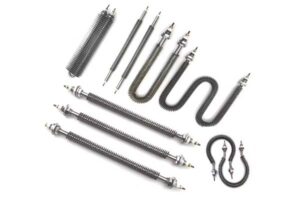Worried about your water tank not heating up efficiently? Or maybe you need a portable solution for on-demand hot water? You are not alone.
Submersible heating elements are key for heating liquids directly. Choosing the right one depends on your needs. This guide will help you pick the best one.
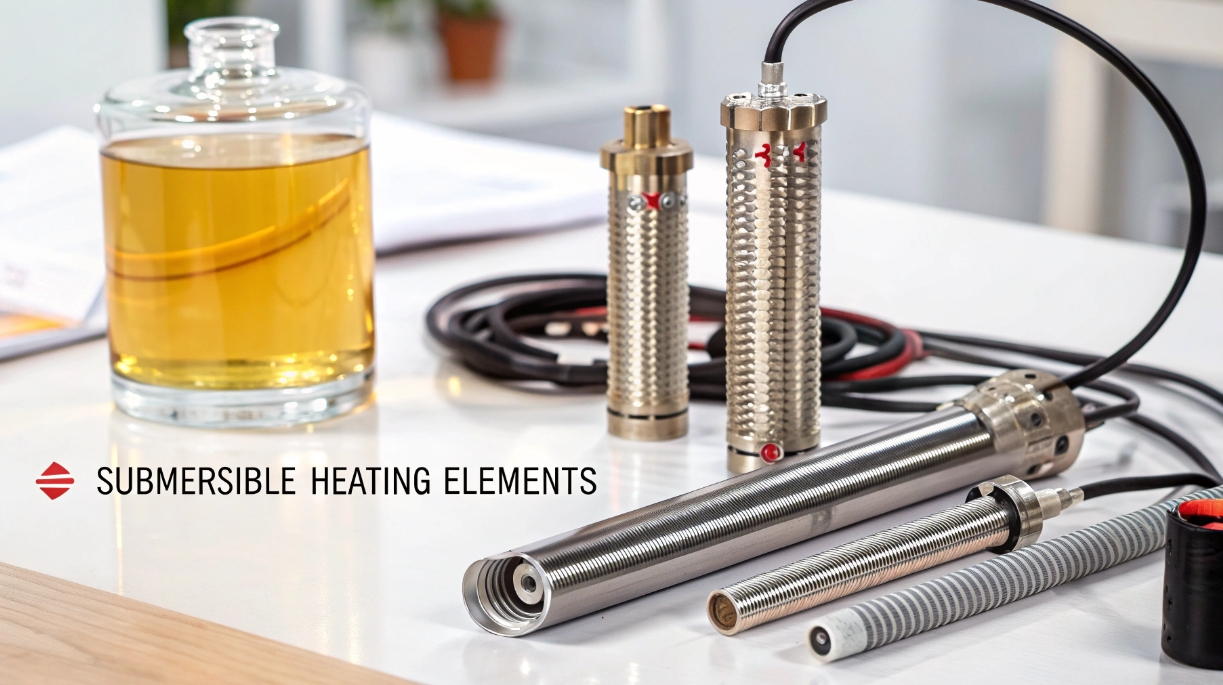
So, how do you pick the right submersible heater? Let’s dive into the details.
How to Choose the Best Submersible Heating Element for Your Water Tank?
Is your water tank taking too long to heat up? Are you using too much energy? Picking the right submersible heater can solve these problems.
To choose the best submersible heater for your water tank, consider the tank size, material, and desired temperature. Also, check the heater’s power, material, and safety features.

Choosing the right submersible heater for your water tank involves several factors. You need to consider the size of your tank, the material it’s made of, and the temperature you want to achieve. Different heaters have different power levels. Using the wrong one can lead to inefficient heating or even damage to your tank.
What Factors to Consider?
| Factor | Description |
|---|---|
| Tank Size | A larger tank needs a more powerful heater. Using a low-power heater in a big tank will take too long to heat. |
| Tank Material | Some materials don’t work well with certain heaters. For example, a plastic tank might not handle a high-temperature heater. |
| Temperature | Know the temperature you need. Some heaters can reach high temperatures, while others are for lower settings. |
| Heater Power | Measured in watts. More watts mean faster heating. But more watts also mean more energy use. |
| Heater Material | Stainless steel is common, but other materials like titanium are better for corrosive liquids. |
| Safety Features | Look for features like automatic shut-off. This prevents overheating and damage. |
I remember one time a customer called us, very frustrated. They had bought a cheap heater online, and it failed within a month. It turned out they hadn’t considered the tank size or the heater’s power. We helped them choose a more suitable heater, and they were much happier with the result.
Stainless Steel vs. Titanium Submersible Heaters: Which Is Right for You?
Are you confused about stainless steel and titanium heaters? Do you know which one is best for your needs? The choice depends on the liquid you’re heating.
Stainless steel heaters are good for general use and are cost-effective. Titanium heaters are better for corrosive liquids like saltwater. Titanium resists corrosion better than stainless steel.

The material of your submersible heater is very important. Stainless steel and titanium are two popular choices. Each has pros and cons. The best choice depends on what you are heating and what your budget is.
Comparing Materials
| Feature | Stainless Steel | Titanium |
|---|---|---|
| Cost | Less expensive. | More expensive. |
| Corrosion | Can corrode in some liquids, especially those with chlorides. | Highly resistant to corrosion, even in harsh chemicals. |
| Strength | Strong and durable. | Very strong and lightweight. |
| Best Use | General purpose, fresh water, and some chemical solutions. | Saltwater, acids, and other corrosive liquids. |
| Lifespan | Long lifespan if used in suitable conditions. | Longer lifespan in harsh environments. |
At ELEKHEAT, we often recommend titanium heaters for industrial applications. These environments usually involve corrosive substances. For example, a client in the chemical processing industry switched to titanium heaters. They reduced downtime and saved money in the long run.
5 Common Problems with Submersible Heating Elements (and How to Fix Them)
Is your submersible heater not working right? Are you seeing error messages? Knowing common problems can help you fix them quickly.
Common problems include overheating, corrosion, and electrical issues. Check the power supply, clean the element, and ensure proper grounding to fix them. Replace the heater if needed.
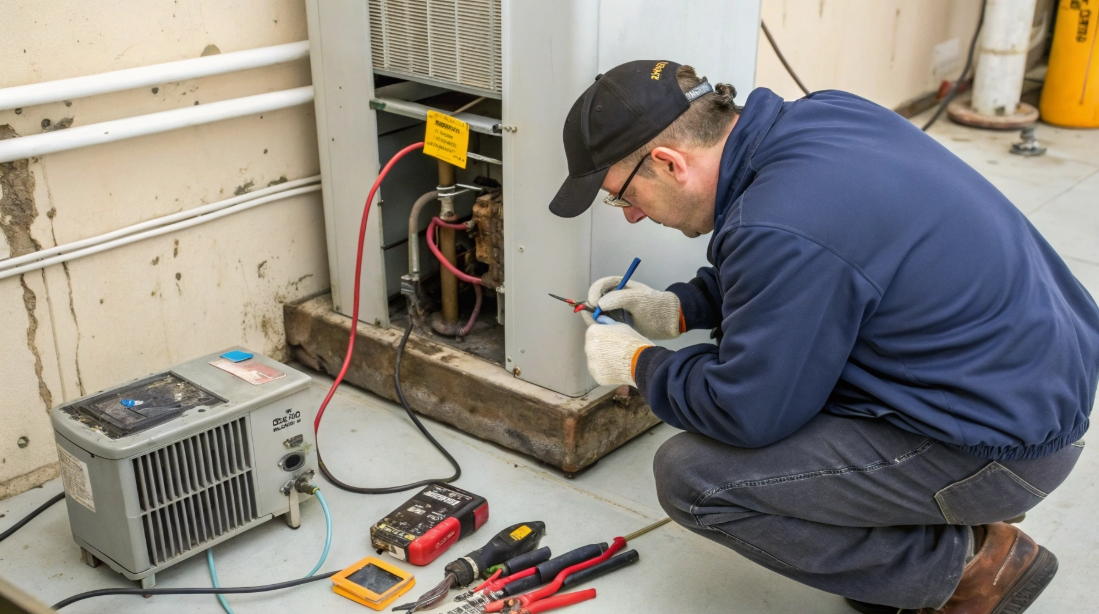
Submersible heaters can fail for several reasons. Knowing these problems can save you time and money. Regular maintenance and proper use can also extend the life of your heater.
Troubleshooting Tips
| Problem | Possible Cause | Solution |
|---|---|---|
| Not Heating | Power supply issue, faulty element. | Check power cord, test the element with a multimeter, replace if needed. |
| Overheating | Low water level, thermostat malfunction. | Ensure the heater is fully submerged, check the thermostat, replace if needed. |
| Corrosion | Incompatible liquid, wear and tear. | Use the correct material for the liquid, clean the element regularly, consider a titanium heater. |
| Electrical Fault | Grounding issue, damaged wiring. | Check grounding, inspect wiring, replace damaged parts, consult an electrician. |
| Short Lifespan | Improper use, lack of maintenance. | Follow manufacturer’s instructions, clean regularly, use a surge protector. |
I remember a customer who kept having their heaters fail. After some investigation, we found out that they were using tap water with high mineral content. The minerals were building up on the heating element, causing it to overheat and fail. Switching to distilled water solved the problem.
Industrial vs. Household Submersible Heaters: Key Differences Explained
Are you choosing between an industrial and a household heater? Do you know the differences? Knowing the differences ensures you pick the right one for your needs.
Industrial heaters are designed for heavy-duty use and larger volumes. They are more powerful and durable than household heaters. Household heaters are for smaller tasks and are less expensive.
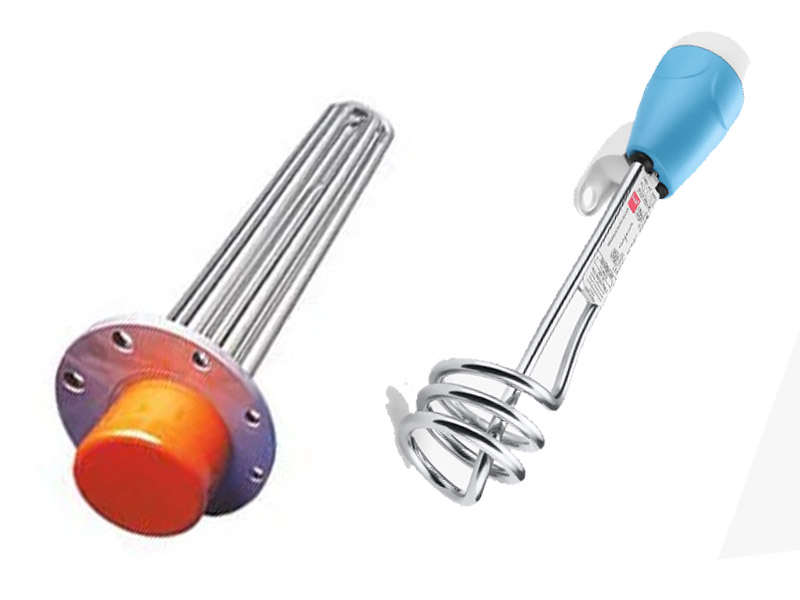
Industrial and household heaters serve different purposes. Industrial heaters are built for demanding tasks. Household heaters are for everyday use. Knowing their differences will help you make a better choice.
Key Differences
| Feature | Industrial Heaters | Household Heaters |
|---|---|---|
| Power | High power for fast heating of large volumes. | Lower power for smaller volumes. |
| Durability | Built to withstand continuous use and harsh conditions. | Designed for occasional use. |
| Materials | Often made with corrosion-resistant materials like titanium. | Typically made with stainless steel or other cost-effective materials. |
| Safety Features | Advanced safety features like over-temperature protection and automatic shut-off. | Basic safety features. |
| Cost | More expensive due to higher quality materials and construction. | Less expensive. |
| Applications | Chemical processing, manufacturing, large-scale water heating. | Aquariums, small water tanks, home brewing. |
At ELEKHEAT, we provide both industrial and household heaters. We once had a client who mistakenly used a household heater for an industrial application. The heater failed quickly, causing significant downtime. We helped them choose the right industrial heater, and they haven’t had any problems since.
Portable Submersible Heaters: A Guide to On-Demand Hot Water Solutions
Need hot water on the go? Are you camping or traveling? Portable submersible heaters offer a convenient solution.
Portable submersible heaters are small and easy to carry. They heat water quickly in containers like cups or bowls. They are great for travel, camping, and emergencies.
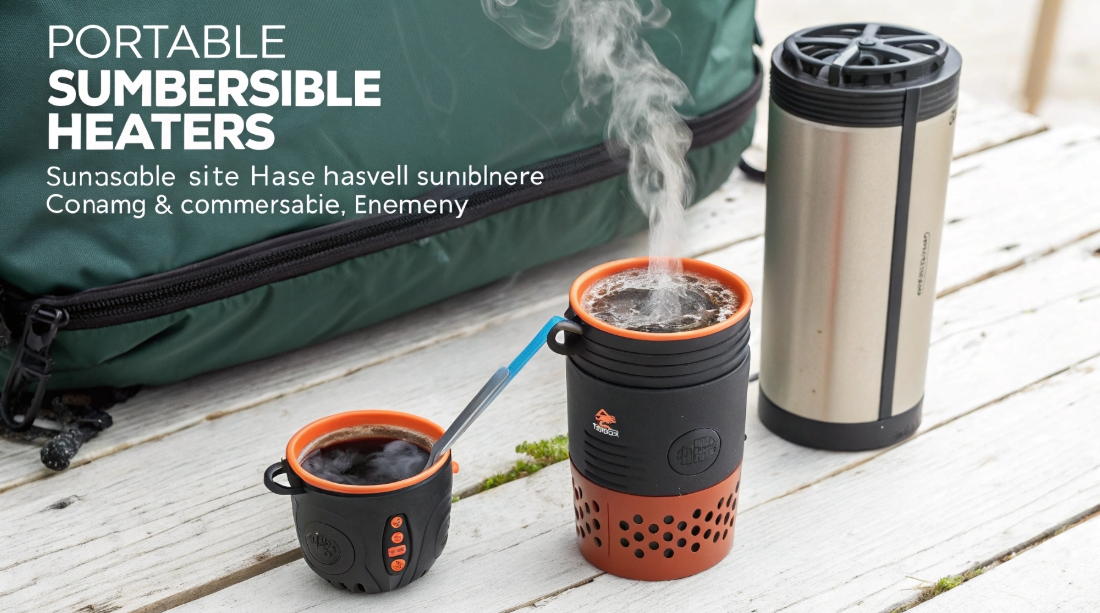
Portable submersible heaters are great for on-demand hot water. They are small and easy to use. They are ideal for travel, camping, and situations where you need hot water quickly.
Features of Portable Heaters
| Feature | Description |
|---|---|
| Size | Compact and lightweight for easy packing. |
| Power | Lower power consumption, usually compatible with portable power sources. |
| Safety | Built-in safety features like automatic shut-off to prevent overheating. |
| Ease of Use | Simple to use, just immerse in water and plug in. |
| Applications | Heating water for coffee, tea, or instant meals while traveling, camping, or during emergencies. |
I use a portable submersible heater when I go camping. It’s so convenient to have hot water for coffee in the morning. One time, our camping stove broke down, and the portable heater saved the day. We were still able to enjoy hot meals and drinks.
Conclusion
Choosing the right submersible heating element depends on your specific needs. Consider the material, power, and safety features to ensure efficient and safe heating.
